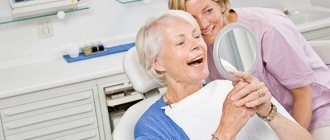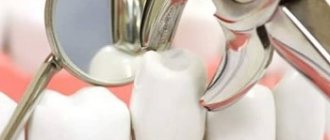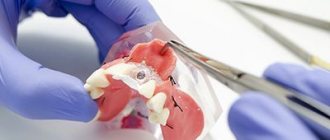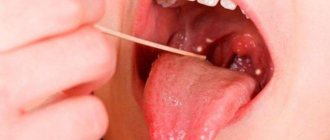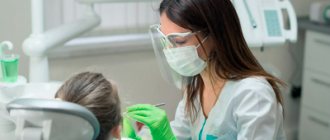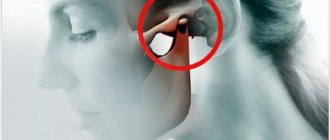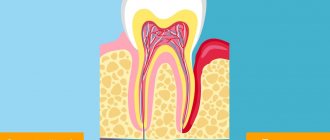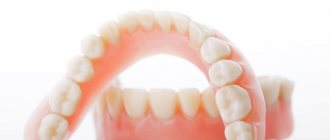Glossalgia is a secondary manifestation of a number of diseases and manifests itself in the form of painful sensations in the tongue area. The patient may experience burning, pinching, tingling and other unpleasant symptoms. Symptoms are not related to external stimuli or food intake. Upon examination, the mucous membrane of the tongue is not changed, has a physiological color, and is free of damage. The pain can be quite intense and usually occurs for no apparent reason. Taking painkillers provides only a short-term effect. To radically solve the problem, it is necessary to identify and eliminate the main cause causing these clinical manifestations.
According to ICD-10, glossalgia is one of the manifestations of glossodynia, which is a pathology of a neurological nature.
Causes of glossalgia of the tongue
It has been noticed that glossalgia appears after traumatization of the tongue by foreign sharp objects, incorrectly installed fillings, implants or prostheses. Also, its symptoms are often associated with disorders of the autonomic nervous system. Due to further irritation of the mucous membrane, the disease becomes chronic. Scientists have not established the organic causes of glossalgia.
Among the provoking factors, doctors name:
- liver diseases;
- diseases of the gastrointestinal tract;
- vascular lesions combined with diseases of the central and peripheral nervous system, functional disorders;
- malfunctions of the nervous system.
According to reviews, glossalgia can occur as a result of neurosyphilis, encephalitis, hemorrhagic and ischemic stroke. It can also be a symptom of viscero-reflex bulbar syndrome, which is characterized by damage to the vagus and glossopharyngeal nerves.
Treatment methods
Therapeutic measures begin with complete sanitation of the oral cavity:
- filling carious lesions;
- replacement of incorrect prosthetic structures;
- replacement of defective and outdated fillings.
New dentures will help shape the jaw relationship, and visiting highly specialized doctors - a neurologist, endocrinologist, psychotherapist, etc. will help adjust treatment tactics and achieve better results.
The main therapeutic method is the elimination of pain. So, the doctor can prescribe medications with vitamin B, bromine and iron, tranquilizers and sedatives, and nerve blockade.
For dry mucous membranes and a small amount of saliva - Vit A solution (to moisturize and increase salivation). It is possible to use reflexology and physiotherapy.
It is important to be attentive to your mental and emotional state - relaxation and breathing exercises.
What are the symptoms of glossalgia?
With glossalgia, patients complain of:
- burning and tingling sensation in the tongue area;
- dry mouth;
- pain in the mouth.
The discomfort caused by the disease is permanent or periodic. It may intensify after eating spicy food or prolonged conversations. In some patients, while chewing non-spicy food, the pain, on the contrary, goes away.
If glossalgia is left untreated, symptoms may disappear and reappear. However, it is usually not possible to establish the causes of their occurrence. Changes in the mucous membrane of the tongue and oral cavity are not detected in the described pathology. Only 5% of patients experience:
- swelling of the mouth;
- coating of the tongue with a white or yellowish coating;
- hypertrophic changes in the papillae of the tongue.
During palpation, patients experience acute pain. Constant discomfort and the inability to talk, eat, drink normally have a negative impact on the emotional sphere. Some patients with symptoms of glossalgia become depressed, become too suspicious and apathetic, and suffer from insomnia.
If you notice similar symptoms, consult a doctor immediately. It is easier to prevent a disease than to deal with the consequences.
Complex treatment of patients diagnosed with glossalgia
Glossalgia is a common dental disease that reduces ability to work, depresses the psyche, and causes depression.
This is one of the most difficult and controversial diagnoses that a dentist has to deal with. There is a growing trend of the disease in modern developed countries. According to the literature, from 27 to 76% of dentist patients have complaints of burning in the oral cavity. This pathology occurs 7 times more often in women than in men [1, 2].
The variety of clinical manifestations of glossalgia is determined by the polyetiological nature of the pathological changes developing in this condition, which complicates its diagnosis and treatment. One of the social aspects of glossalgia is the uncontrolled use of painkillers and sedatives, self-medication, which often leads to chronic intoxication and substance abuse. In recent years, the point of view has become increasingly widespread, according to which the development of the disease is associated with dysregulation of the sympathetic division of the autonomic nervous system. However, there is still no sufficiently substantiated concept of the pathogenesis of glossalgia. According to modern concepts, this is a complex symptom complex, in the etiology and pathogenesis of which various exogenous and endogenous factors may be important.
This work aims to study the pathogenetic connection of glossalgia with the pathology of the gastrointestinal tract; According to the literature, paresthesia can occur in the body due to vitamin imbalance, deficiency of B vitamins and iron, hyperacid gastritis, atrophic gastritis, and colitis.
Under our observation for 3 years there were 41 patients diagnosed with glossalgia (36 women and 5 men) aged from 20 to 60 years.
Subjective sensations characteristic of glossalgia in a number of patients spread to the tongue, lips, hard palate, and less often to the mucous membrane of the alveolar process and other parts of the oral cavity. Common symptoms included increased irritability, sleep disturbance, tearfulness, and anxiety; 21 people, in addition, suffered from cancerophobia. 33 patients had complaints about dysfunction of the gastrointestinal tract, 17 of them took oral antibiotics for a long time for various inflammatory diseases; 5 people had a history of dysentery and similar disorders; 32 patients associated the appearance of glossalgia symptoms with prosthetics or tooth extraction. In most of them, the onset of the disease was preceded by mental trauma.
When examining the oral cavity in 36 patients, a typical picture for the pathology of the gastrointestinal tract was noted: coating, swelling of the tongue and mucous membrane. In some patients, changes in the tongue were in the nature of focal desquamation, and burning and pain were often localized in these areas. In some cases, small areas of hyperemia on the tongue were noted. In 5 patients, no changes in the oral mucosa were detected. Along with the described changes in the mouth, salivation was impaired in 20 patients: xerostomia in 15, hypersalivation in 3.
All patients underwent sanitation of the oral cavity, including prosthetics. At the same time, they were referred to a gastroenterologist for examination of the gastrointestinal tract (fluoroscopy and radiography of the stomach and duodenum, gastroscopy, cholecystography, irrigoscopy, analysis of gastric juice, duodenal contents if indicated). According to indications, stool was examined for the presence of dysbiosis and cultured for fungi from the oral mucosa.
The patients were divided into 2 groups. In group 1 (8 patients), there were no complaints from the gastrointestinal tract; in group 2 (33 patients), patients had complaints related to the state of the gastrointestinal tract. Control examinations were carried out 3-4 times a year for 3 years.
In group 1, despite the absence of complaints, chronic subacid gastritis (4 patients), hyperacid gastritis (3 patients) and gastritis with normal acidity (1 patient) were identified.
Based on the data obtained, patients in group 1 were prescribed a course of treatment, which included the use of drugs that normalize the secretion of the gastrointestinal tract (plantoglucide, orazu, abomin, panzinorm or pancurmen, herbal infusions), in combination with tenaten, injections of vitamins B1, B6 and B12. Tenoten was prescribed 2 tablets in the morning and afternoon and 2 +2 tablets for resorption under the tongue at night for at least a month.
The drug tenoten was developed and produced for the medical practice of NPF Materia Medica Holding. The drug has a wide range of psychotropic and neurotropic pharmacological activity, confirmed in generally accepted experimental models: anxiolytic, stress-protective, antihypoxic, anti-aggressive, antidepressant, antiasthenic, nootropic, neuroprotective and some others [2, 5].
In a clinical study, tenoten showed a high anxiolytic effect in adult and pediatric dental procedures and is approved for wide medical use [3].
Treatment was carried out in courses, each course lasted 1.5-2 months.
After the first course of treatment, complaints of burning in the tongue, lips and gums disappeared in 6 out of 8 patients. The second and third courses of treatment (after 6-8 months) contributed to the disappearance of symptoms of the disease in 7 patients and stable consolidation of the effect by the end of the 3rd year of observation. In 1 patient of this group, the condition improved only after an additional course of treatment with colibacterin.
Patients of the 2nd group, in addition to complaints of painful sensations in the oral cavity, made various complaints about the state of the gastrointestinal tract: heaviness in the epigastric region after eating, occasionally pain, belching, flatulence, unstable stools (up to 2-3 times per day). During the examination, chronic gastritis with secretory insufficiency and symptoms of chronic enterocolitis G-II degree, intestinal dysbiosis (according to clinical and in some cases laboratory data) were revealed in all these patients. The course of treatment included taking eubiotics (intestopan, enteroseptol, mexase, mexoform) for 1 week, followed by a 3-4 week course of using bificol, bifidumbacterin and colibacterin against the background of enzyme and vitamin therapy and taking the drug tenoten in the indicated doses. The course of treatment is 3 months, can be extended to 6 months, repeated after 1-2 months.
Patients in both groups were on a diet; their meals were split and frequent. Mechanically and chemically gentle food was recommended, fatty, spicy fried foods and canned foods were excluded, as well as foods that enhance fermentation and putrefactive processes in the intestines (sweets, cabbage, black bread, grapes, fresh apples, whole milk). After the 4th course of treatment, all patients of group 2 achieved good results.
In 28 cases, manifestations in the oral cavity disappeared, and in 5 cases, manifestations in the oral cavity decreased significantly. To consolidate the clinical effect, the course of this treatment was carried out 2-3 times a year, which made it possible to achieve lasting results in all 28 patients, including 12 out of 17 patients who used antibiotics for a long time. In these patients, culture of scrapings from the oral mucosa revealed the growth of candida fungus, which served as the basis for an additional course of treatment with levorin tablets (up to 3,000,000 units/day) immediately after a course of antibiotics.
Quantitative characteristics of treatment results were assessed using the Spielberger-Khanin scale and the SAN questionnaire (well-being, activity, mood). After a course of treatment, situational anxiety in patients decreased by 82%. Analysis of indicators of well-being and mood on the SAN scale revealed a significant increase (p<0.05) in relation to the initial values. There was general calmness, a decrease in the negative influences of the environment, and normalization of sleep.
Stabilization of hemodynamic changes was noted. A study of the therapeutic and anxiolytic effects of the drug tenoten showed good tolerability, no side effects, a reliable reduction in anxiety levels, and a good therapeutic effect of the drug. The drug was effective in patients with glossalgia.
Thus, the use of the drug tenoten in the complex treatment regimen for patients with glossalgia showed reliable results.
Simultaneously carried out courses of treatment made it possible to achieve improvement in the majority of patients’ well-being, mood, oral cavity and gastrointestinal tract.
Subsequent similar courses of treatment were carried out 2-3 times a year.
Summarizing the results of our treatment, we should emphasize the need for a comprehensive examination of patients with glossalgia and prescribing them general targeted therapy.
All proposed recommendations can be used in the treatment of patients with glossalgia in an outpatient dental appointment.
LITERATURE
- Garayeva A. G. Clinical aspects of burning mouth syndrome in dental practice. Author's abstract. diss. Ph.D. honey. Sci. - M.: 2003. - P. 25.
- Grishina N.V. Psychophysiological and neurophysiological characteristics of patients with burning mouth syndrome // Neurostomatology. - 1999, No. 1. - P. 39-40.
- Dukhina I. A. Features of the anti-stress effect of tenoten (antibodies to the brain-specific protein S-100) depending on the type of emotional reaction (experimental and clinical research). Author's abstract. diss.candidate. honey. Sci. - Staraya Kupavna, 2006. - P. 25.
- Kheifets I.A., Dugina Yu.L. et al. // Abstracts of the 4th International Conference “Biological basis of individual sensitivity to psychotropic drugs”. - M., 2006. - P. 77.
- Epshtein O.I. Regulatory capabilities of ultra-low doses // Bull. exp. biol. honey. - 2002. - Appendix 4. - pp. 8-14.
Diagnosis of glossalgia of the tongue
Diagnosis of glossalgia is aimed at differentiating the disease from conditions that have similar symptoms, such as:
- pathological bite syndrome;
- initial stage of osteochondrosis of the cervical spine;
- tongue injury;
- neuralgia;
- neuritis.
The main difference between glossalgia and organic lesions is the discrepancy between the painful sensations and the intensity of the impact. In addition, the doctor draws attention to the fact that changes in the mucous membrane of the oral cavity and tongue are almost completely absent.
With neuralgia, the pain is short-term and localized specifically in the area of a specific nerve. With glossalgia, they are diffuse in nature, since we are talking about inorganic damage to the vagus nerve.
Glossalgia differs from neuritis in that the pain is distributed throughout the entire oral cavity. It's not one-sided. At the same time, tactile sensitivity does not disappear completely and does not increase during chewing of food.
Diagnostic measures
It is important to correctly diagnose in order to distinguish between glossalgia and other language pathologies that develop due to trauma, increased pain and sensitivity of the nerves. The specialist will perform a visual and instrumental examination of the oral cavity to assess the bite relationship. The main thing is to determine the difference in sensitivity and strength of impact.
In case of trauma, pain sensations are clearly located. With nerve pain, the pain quickly disappears at the point where the nerve passes. In inflammatory processes - on the one hand, and with a change in reactivity.
How to cure glossalgia
Treatment for glossalgia depends on the cause of the disease. It may consist of:
- sanitation of the oral cavity;
- replacement of poorly installed dentures, allowing the formation of a correct bite.
The patient is also recommended to consult with a gastroenterologist, neurologist and endocrinologist, and talk with a psychologist.
Pathogenetic therapeutic measures for glossalgia consist of influencing the central and peripheral parts of the pain symptom and normalizing homeostasis. For this, the patient is prescribed:
- valerian;
- bromine preparations;
- mild tranquilizers (“Phenazepam”);
- B vitamins;
- trimecaine blockade of the lingual nerve (allows you to completely restore the functions of the affected nerve);
- iron preparations (“Gemostimulin”, “Ferroplex”, “Ferrocal”);
- local anesthetics;
- mouth baths;
- treatment of painful areas with vitamin A and rosehip oil.
Also, for a speedy recovery from glossalgia, the following can be used:
- hypnosis (hypnotic sleep);
- reflexology;
- physiotherapy.
Surgeries are not performed for glossalgia. Usually, patients manage to get rid of an unpleasant illness with the help of medications, folk recipes and physiotherapeutic procedures.
Possible complications
This disease does not threaten health, but significantly reduces the quality of life.
If you ignore an unpleasant symptom, glossalgia can become chronic. Its symptoms will occur from time to time, exacerbating the unstable psycho-emotional state.
Against the background of pain, anxiety, eating disorders, sleep disorders, nervousness, and phobias can develop.
As the condition worsens, treatment should be carried out not only by the dentist, but also by other specialists - a neurologist, psychiatrist or psychotherapist.
A long-lasting symptom can cause forced dietary restrictions, which can affect the overall health and cause vitamin deficiencies, weight loss, and lack of minerals.
Possible complications include inflammatory diseases of the oral cavity.
For example, a lack of saliva can lead to canker sores.
, and when exposed to unfavorable factors or injuries, the likelihood of
glossitis, gingivitis
and other
ailments
increases.
Prevention of glossalgia
Prevention of glossalgia involves regular examination of the oral cavity and an annual visit to the dentist. Important:
- timely restoration of damaged teeth and treatment of caries;
- install only high-quality prostheses;
- brush your teeth twice a day;
- Periodically rinse your mouth with herbal decoctions and special antiseptic solutions.
This article is posted for educational purposes only and does not constitute scientific material or professional medical advice.
Answers on questions
Is it possible to cure this disease at home?
It is impossible to cure this pathology with any home remedies. The use of pharmaceutical products without a doctor's prescription leads to complications. It is recommended to contact a dental clinic at the first symptoms.
What are the complications of glossalgia ?
The disease does not have serious complications, but significantly disrupts the patient’s daily life. In some cases, eating becomes difficult, and long conversations tire the patient. Headache and sleep disturbance are also observed. In addition, the disease can become chronic: periodically the discomfort goes away, then returns again. Therefore, treatment should not be delayed.

